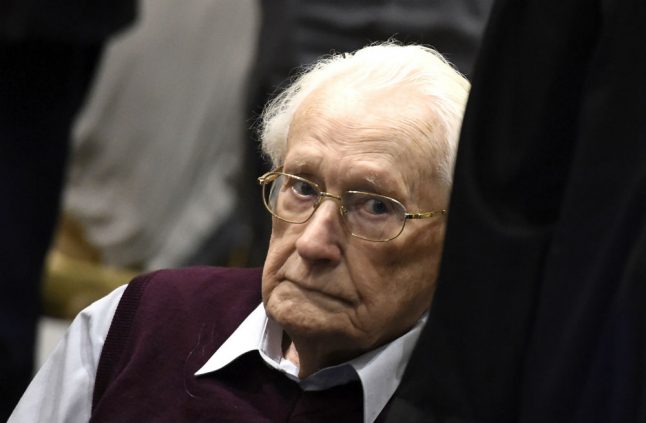The man has been in remand in Stockholm since November 2010 when he was arrested on suspicions of having ordered the killing of Swedish second division football player Eddie Moussa and his brother in Södertälje in July.
Three weeks ago, however, police discovered that several people who belong to the same criminal network as the 30-year-old were standing on the sidewalk outside the Kronoberg jail in Stockholm where the 30-year-old is being held.
In the window of the jail, a man was standing holding up notes with instructions written on them, the local Södertälje newspaper Länstidningen reported.
According to the newspaper, the suspect has now been moved to a different remand centre in Gothenburg.
Ulf Göranzon, a spokesperson for the Stockholm County police, refused to comment on the report, but instead directed inquiries to the Swedish Prison and Probation Service (Kriminalvården).
Anders Leckne, head of the Kronoberg jail, confirmed that what he termed as an attempt to communicate had occurred.
“An incident occurred which we learned of and took action upon. It led to a person behind moved within the jail to a room with a limited view,” Leckne told the TT news agency.
Leckne, however, can’t confirm that the man was moved to a jail in Gothenburg.
It remains unknown whether or not the 30-year-old communicated with the outside world on previous occasions before being discovered.
The 26-year-old Moussa was and his 40-year-old brother Yaacoub were shot dead in Café Oasen, a known gambling club in Södertälje’s Ronna shopping precinct on July 1st, 2010.
According to witnesses, three men came into the premises shortly after 2am in the morning and began firing automatic weapons, killing the two brothers and injuring a third victim.
At the time, police suspected the killings may have been a targeted killing orchestrated by elements of the criminal underworld.
Eddie Mousssa was a promising young football star of Lebanese-Assyrian extraction who held both Swedish and Dominican passports. He debuted for Assyriska FF, a Södertälje-based club which played one season in Sweden’s Allsvenskan top-flight after winning promotion in 2004.
The club, which was founded only in 1974, has a large following in Södertälje and is considered by many to be a substitute national team for the Assyrian people.



 Please whitelist us to continue reading.
Please whitelist us to continue reading.
Member comments